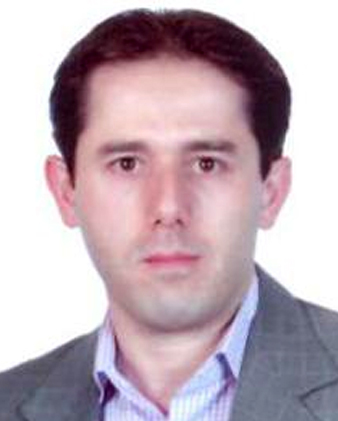- Machine/Deep Learning
- Fault Diagnosis
- Speech and Audio Signal Processing
- M. H. Savoji and G. Alipoor, “Speech Coding using Non-Linear Prediction Based on Volterra Series Expansion,” Iranian Journal of Electrical and Computer Engineering (IJECE), vol. 5, no. 1, pp. 1-9, 2007 (in Farsi). http://ijece.saminatech.ir/Article/27860
- G. Alipoor and M. H. Savoji, “Employing Volterra Filters in the ADPCM Technique for Speech Coding: A Comprehensive Investigation,” European Transactions on Telecommunications, Wiley & Sons, Ltd, vol. 22, no. 2, pp. 81-92, 2011. https://doi.org/10.1002/ett.1440
- G. Alipoor and M. H. Savoji, “Nonlinear Backward ADPCM Speech Coding Using Kernel Methods and Online Sparsification,” Transactions on Emerging Telecommunications Technologies, vol. 25, no. 2, pp. 161-172, 2014. https://doi.org/10.1002/ett.2549
- G. Alipoor and M. H. Savoji, “Reconstruction Noise Spectral Shaping in the ADPCM Codec with Backward Prediction,” Iranian Journal of Electrical and Computer Engineering (IJECE), vol. 12, no. 2, pp. 75-80, 2014, (in Farsi). http://ijece.saminatech.ir/fa/Article/28088
- G. Alipoor and M. H. Savoji, “8 kbps Speech Coding using KLMS Prediction, Look-Ahead Adaptive Quantization and Pre-Emphasized Noise Reduction,” International Journal of Information and Communication Technology Research, vol. 7, no. 3, pp. 11-19, 2015. https://ijict.itrc.ac.ir/article-1-90-en.html
- G. Alipoor, “Utilizing Kernel Adaptive Filters for Speech Enhancement within the ALE Framework,” Iranian Journal of Electrical and Electronic Engineering, vol. 13, no. 4, pp. 303-309, 2017. http://ijeee.iust.ac.ir/article-1-1044-en.html
- G. Alipoor and E. Samadi, “Robust Gender Identification using EMD-Based Cepstral Features,” Asia-Pacific Journal of Information Technology & Multimedia. vol.7, pp. 71-81, 2018. dx.doi.org/10.17576/apjitm-2018-0701-06
- M. K. Eghbal G. Alipoor, “LMSK: a robust higher-order gradient-based adaptive algorithm,” IET Signal Processing, vol. 13, no. 5, pp. 506-515, 2019. https://doi.org/10.1049/iet-spr.2018.5242
- E. Samadi and G. Alipoor, “Efficient band selection for improving the robustness of the EMD-based cepstral features,” Sādhanā, vol. 44, no. 3, pp. 54-63, 2019. https://doi.org/10.1007/s12046-019-1052-x
- M. K. Eghbal and G. Alipoor, “An Analytical Model for Predicting the Convergence Behavior of the Least Mean Mixed-Norm (LMMN) Algorithm,” Signal and Data Processing, vol. 18, no. 3, pp. 19-28, 2021, (in Farsi). https://jsdp.rcisp.ac.ir/article-1-1002-en.html
- G. Alipoor, et al. “Incipient detection of stator inter-turn short-circuit faults in a Doubly-Fed Induction Generator using deep learning,” IET Electric Power Applications, vol. 17, no.2, pp. 256– 267, 2023. https://doi.org/10.1049/elp2.12262
- G. Alipoor and K. Skretting, “Kernel Recursive Least Squares Dictionary Learning Algorithm,” Digital Signal Processing: a review journal, vol.141, September 2023. https://doi.org/10.1016/j.dsp.2023.104159
- N. Siavash-Abkenari, G. Rahmani-Sane, H. Torkaman and G. Alipoor, "Exploring a Cutting-Edge Framework for Bearing Fault Detection: A Synergistic Approach Integrating Statistical Analysis and Deep Learning Methods," in IEEE Journal of Emerging and Selected Topics in Industrial Electronics, vol. 5, no. 3, pp. 1226-1233, July 2024, doi: 10.1109/JESTIE.2024.3373313.
- N. Amani, G. Alipoor, A. Kokabi, and R. A. Naghizadeh, “Sensitivity Analysis of Meteorological Variables in Load Forecasting Using LSTM.” (Under Review).
- N. Amani, A. Kokabi, G. Alipoor, and R. A. Naghizadeh, “Power Consumption Forecast Enhancement Using Transformer Model and Inclusion of Thermal Comfort Indices,” (Under Review).
- Undergraduate: Electric Circuits I, Signals & Systems, Electronic Circuits, Electric Circuits Lab, Communication Circuits Lab, Digital Electronics Lab, DSP, DSP Lab (using TI DSP processors)
- Graduate: Advanced DSP, Adaptive Filters, Pattern Recognition, Speech Processing






